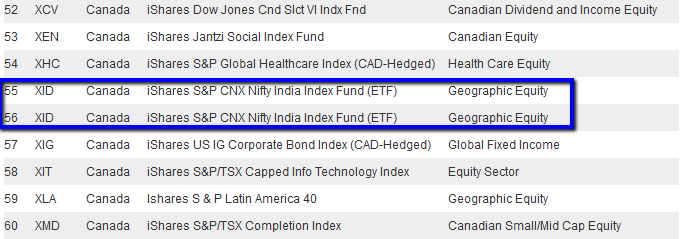In the final part of our series on commission-free ETF trading at Canadian discount brokerages, we look at the offers from Virtual Brokers and Questrade and conclude the series with some lessons learned from researching commission-free ETF offers. If you missed the earlier parts of the series, click here for part 1, here for part 2 or here for part 3.
Commission-Free ETFs at Virtual Brokers
While Virtual Brokers started offering commission-free ETF trading on a limited set of ETFs, in 2012 they rolled out commission-free ETF purchases on all ETFs. Because they have two “commission-free” ETF offers going concurrently, a great deal of confusion appears to have been caused with investors. As such, it bears repeating that at Virtual Brokers, all ETFs can be purchased commission-free but only a certain set of ETFs can be purchased and sold commission-free.

Committing to a list of 100 ETF funds by 17 different fund providers is a bold undertaking within the ETF space. Because funds change according to market forces, staying on top of which funds are still functional proved to be a challenge for Virtual Brokers.
An interesting discovery that was made when looking into the list of 100 ETFs advertised by Virtual Brokers was that their list contained a mixture of duplicate names, miscategorized ETFs and ETFs that had been discontinued. For example, the XID (iShares S&P CNX Nifty India Index Fund) appeared twice in the list (see below); CEW is the ticker symbol for both the WisdomTree Dreyfus Emerging Currency Fund and the Claymore (now iShares) Equal Weight Banc & Lifeco ETF however both were listed as being on the Canadian market (the WisdomTree ETF is listed on the NYSE); four ETFs were identified in the advertised list that had been discontinued for months: DENT, HAG, HIF and XRO; and lastly, many of the ETFs branded as Claymore had yet to be renamed to their new iShares titles.

To Virtual Brokers’ credit, when these issues were pointed out to them, a senior representative confirmed that they would be corrected and after several emails, the list was updated and corrected within 24 hours. The new list has addressed the issues identified above with Virtual Brokers committing to keep their list of commission-free ETFs at 100. ETFs that have been added to replace the discontinued group include First Asset Canadian Convertible Bond ETF (CXF), Horizons Alphapro Balanced (HAA), First Asset DEX Government Bond Barbell Index ETF (GXF), First Asset DEX Corporate Bond Barbell Index ETF and the SPDR Barclays Short Term Treasury ETF (SST).
The fact Virtual Brokers faced a challenge keeping up with their own offers should serve as a lesson to investors. The ETF landscape is highly dynamic and the more specialized ETFs or those that might be more ‘exotic’ are also more prone to being discontinued from lack of investor interest. It would be wise to double check the availability of an ETF on the commission-free list ahead of placing any trades.

Despite the number of ETFs offered commission-free, the majority of funds (>60%) are equity-focused. Unlike the other two discount brokerages’ ETF selections, however, Virtual Brokers’ pool contains a couple of leveraged & inverse-leveraged ETFs which more active traders might find more appealing. Of the three discount brokerages offering commission-free ETFs, Virtual Brokers is also the only one that includes several BMO ETFs. While Virtual Brokers has a more diverse offering of ETF providers (17 providers), over 75% of the commission-free ETF pool comes from only three of those providers.
The fine print on the Virtual Brokers commission-free ETF offer is reasonably straight forward. Two key points to keep in mind for this offer are that in order to be eligible for commission-free ETF trading:
- ETFs must be held for at least one business day
- ETF trades must be placed via the WebTrader platform
There is no minimum purchase amount required so this is positive news for individuals with more modest portfolios. Also a positive feature, no commissions are charged at the time of purchase (and where applicable at the time of sale). In certain instances, other discount brokerages will deduct a commission fee at the time of the trade then issue a refund for the commission usually within a few days of the transaction.